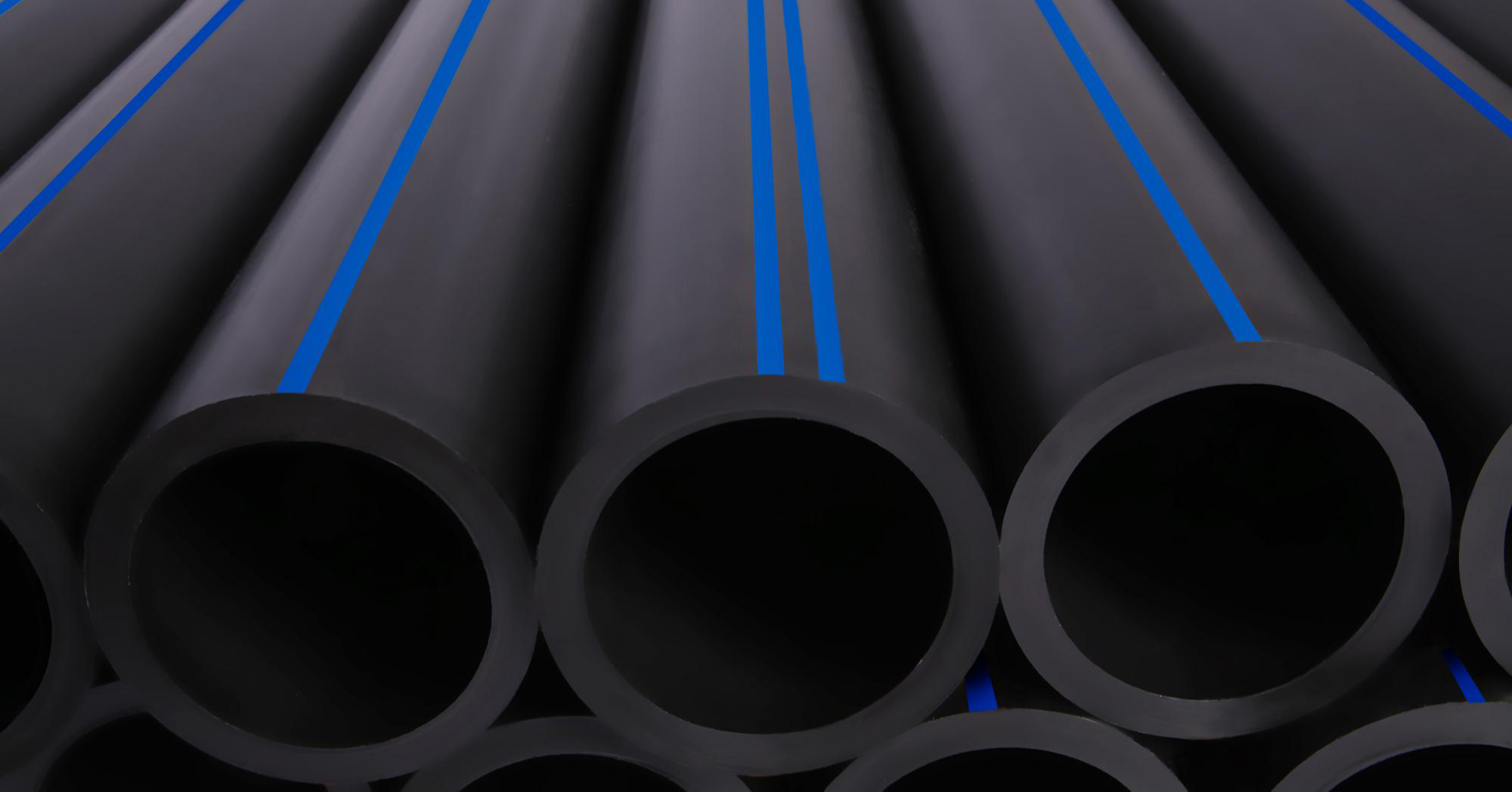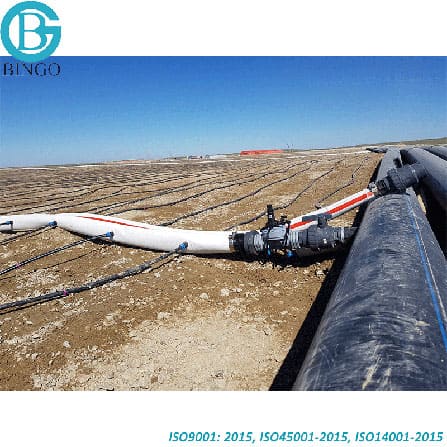American Plastics HDPE Pipe for Oilfield: Trusted by Engineers
Understanding the Key Benefits of HDPE Pipe for Water and Wastewater Management
Making use of HDPE pipe in water and wastewater management offers various benefits that merit consideration. Its extraordinary toughness and lengthy lifespan make it a recommended option for many tasks. In addition, the material's resistance to deterioration and chemical damages enhances its integrity in various settings. Nevertheless, the advantages prolong past just longevity and resistance. Discovering its cost-effectiveness and ecological influence reveals a lot more compelling factors for its prevalent fostering in modern-day infrastructure
Outstanding Durability and Longevity

HDPE pipeline stands out for its outstanding resilience and durability, making it a preferred option in water management systems. Built from high-density polyethylene, these pipelines can withstand substantial stress and anxiety, guaranteeing reliable efficiency in time. Their robust nature allows them to sustain extreme ecological conditions, including temperature level variations and soil motions, which can cause various other materials to stop working.
The life-span of HDPE pipelines usually goes beyond half a century, giving a cost-efficient solution for municipalities and markets alike. Additionally, the material's lightweight homes simplify installment, decreasing labor prices and durations. This sturdiness decreases the requirement for constant repair work or substitutes, further improving its financial charm.
In water administration applications, the reliability of HDPE pipes suggests less disruptions and improved service continuity, making them essential to lasting framework development. The combination of toughness and durability strengthens HDPE's function as a keystone in efficient water monitoring solutions.

Resistance to Corrosion and Chemical Damage
While many materials give in to corrosion and chemical damages in time, HDPE pipelines show remarkable resistance, making them excellent for various water administration applications. This resilience originates from the molecular framework of high-density polyethylene, which is inherently non-reactive and does not wear away like metals or weaken from direct exposure to harsh chemicals. As an outcome, HDPE is extremely reliable in environments with aggressive substances, such as wastewater systems that might consist of acids, bases, and organic solvents.
Additionally, HDPE pipelines can hold up against environmental elements such as soil acidity and saline problems, better enhancing their viability for varied applications (hdpe pipe suppliers Midland TX). Their capability to maintain architectural integrity in time reduces the threat of leakages and failings, which is critical in making sure the safety and integrity of water circulation and wastewater management systems. The resistance to deterioration and chemical damages significantly contributes to the overall performance and longevity of HDPE piping services.
Cost-Effectiveness and Financial Advantages
When taking into consideration the financial implications of water monitoring systems, the cost-effectiveness of HDPE pipelines ends up being noticeable. These pipes supply lower setup and maintenance costs contrasted to conventional products like metal or concrete. Their light-weight nature simplifies transport and installation, causing lowered labor expenditures. In addition, HDPE pipes display a lengthy lifespan, often surpassing 50 years, which translates to less substitutes and lasting financial savings.
The resistance of HDPE to rust and chemical damage reduces the demand for expensive fixings and replacements. The pipelines also sustain efficient water flow, lowering power costs related to pumping systems. By minimizing leaks and water loss, HDPE pipelines add to significant economic advantages for districts and markets alike. Generally, the preliminary financial investment in HDPE piping can yield considerable financial returns over the life expectancy of the water administration system, making it a prudent option for sustainable facilities development.
Ecological Sustainability and Lowered Influence

Convenience and Flexibility in Installation
Due to their special properties, HDPE pipelines supply exceptional adaptability and adaptability in setup, making them appropriate for a large range of applications. Their light-weight nature permits easier handling and transport, reducing labor prices and installment time. HDPE pipes can be bent and shaped to fit different surfaces and task needs, which is specifically useful in testing settings.
In addition, their resistance to deterioration and chemical damages check permits setup in diverse settings without the requirement for specialized safety coatings. The ability to fuse joints creates a constant, leak-free system, improving the general integrity and integrity of the installment. HDPE's adaptability additionally fits ground motion, minimizing the danger of damages in areas susceptible to changing dirt. Overall, these attributes make HDPE pipes not just flexible however also a recommended option for water and wastewater monitoring systems.
Often Asked Concerns
Just How Does HDPE Pipeline Compare to PVC in Water Management Applications?
HDPE pipeline supplies superior adaptability, resistance to deterioration, and resilience contrasted to PVC. Its lighter weight helps with less complicated setup, while its lengthy life expectancy lowers substitute prices, making HDPE a recommended option in water management applications.
What Is the Life Expectancy of HDPE Pipes Under Normal Problems?
Under regular conditions, HDPE pipes can have a life expectancy ranging from 50 to 100 years. Their resilience and resistance to deterioration contribute to their long-lasting efficiency in different applications, making them a reputable option see page for infrastructure.
Are HDPE Pipeline Recyclable After Their Life Span?
Yes, HDPE pipelines are recyclable after their life span. Pipe Manufacturing Midland TX. They can be processed and repurposed into brand-new items, greatly decreasing ecological impact and advertising sustainability within the sector, making them an eco-friendly choice for piping remedies
What Is the Installment Refine for HDPE Pipeline?
The installment process for HDPE pipes entails site preparation, trenching, pipeline combination or mechanical joining, backfilling, and stress screening. Proper techniques guarantee a sturdy and efficient system for delivering water and wastewater successfully.
Can HDPE Piping Be Utilized for Both Safe And Clean and Non-Potable Water Equipments?
Yes, HDPE pipes can be utilized for both drinkable and non-potable water systems. Their versatility, longevity, and resistance to corrosion make them suitable for various applications, ensuring secure and reliable transportation of water in different contexts.